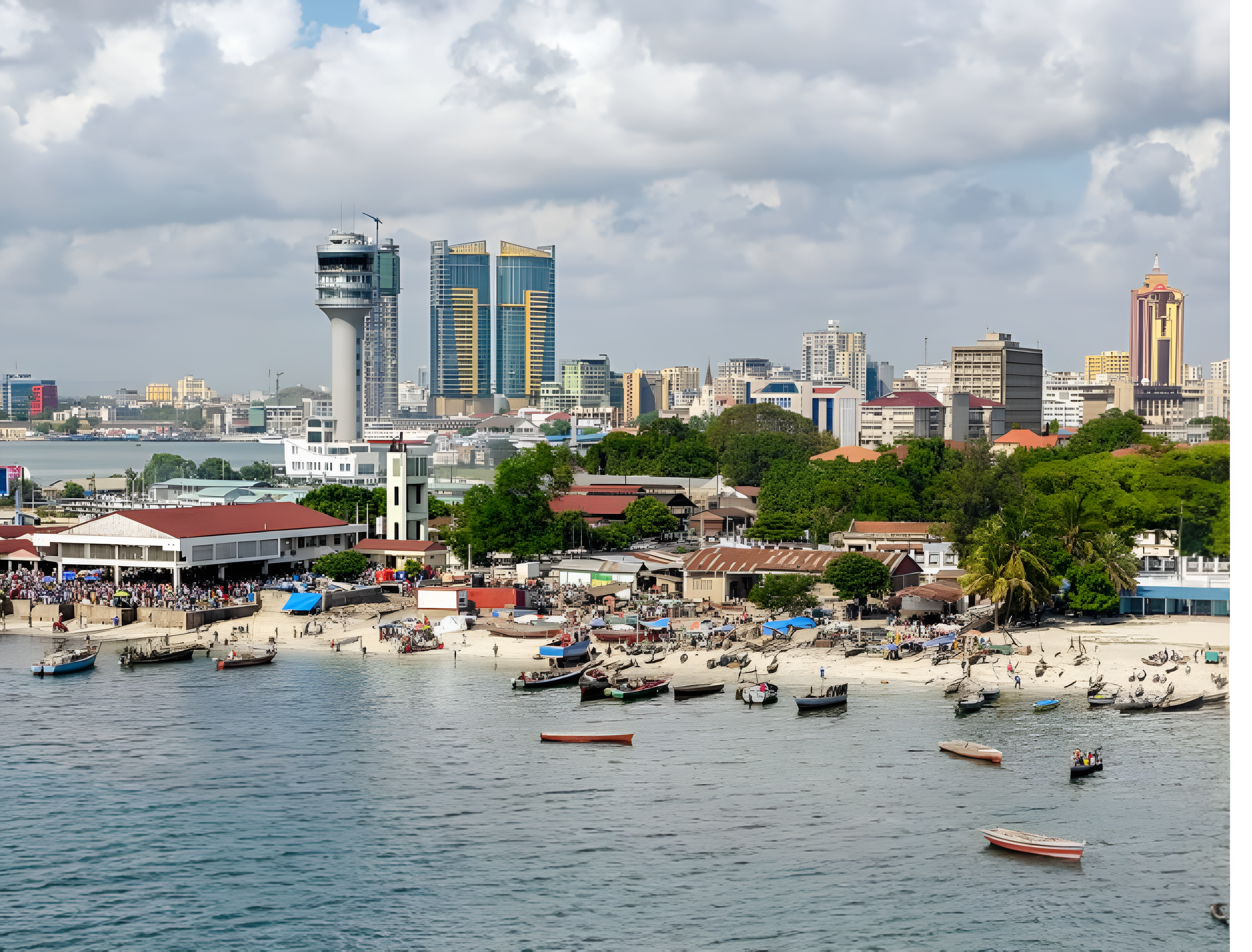
The Role of Investment in Tanzania’s Economic Growth
Tanzania is rapidly evolving into East Africa’s leading economic force, cementing its position as a crucial hub for financial, industrial, and infrastructural advancements. With its strategic location, abundant resources, and investor-friendly policies, Tanzania is attracting global attention as a prime destination for trade and investment. The nation’s impressive economic growth is driven by robust government initiatives, infrastructure development, industrial expansion, and trade partnerships that continue to propel it forward. By prioritizing stability, modernization, and economic diversification, Tanzania is laying a strong foundation for long-term prosperity and regional dominance.
Sustained Economic Growth and Stability
Tanzania’s economy has shown remarkable resilience, consistently recording an annual GDP growth rate of approximately 6–7% over the past decade. The country’s expansion is fueled by key sectors, including agriculture, mining, manufacturing, and tourism. While agriculture remains a dominant contributor to employment and exports, the government’s efforts to diversify the economy have significantly accelerated growth in other industries.
Mining has emerged as a major pillar of economic development, with Tanzania ranking among Africa’s top gold producers. Additionally, the discovery of vast natural gas reserves has attracted substantial foreign direct investment (FDI), driving economic output and employment opportunities. Through policy reforms and improved regulatory frameworks, Tanzania has successfully enhanced investor confidence, ensuring that resource exploitation benefits both local communities and national development.
Infrastructure Boom: A Game-Changer for Economic Growth
Tanzania is undergoing a historic transformation in infrastructure development, with large-scale projects reshaping its economic landscape. A major highlight is the Standard Gauge Railway (SGR), a multi-billion-dollar project set to revolutionize transportation across the region. This railway will improve trade efficiency by linking Tanzania’s commercial hubs with neighboring landlocked nations such as Uganda, Rwanda, Burundi, and the Democratic Republic of Congo. By reducing logistical costs and increasing connectivity, Tanzania is positioning itself as the primary trade corridor for East and Central Africa.
The expansion of the Dar es Salaam Port is another milestone in Tanzania’s infrastructure development. As one of the busiest ports in the region, modernization efforts aim to increase capacity, improve efficiency, and accommodate larger cargo shipments. These enhancements will strengthen Tanzania’s role as a critical entry point for regional and international trade, attracting further investment and bolstering economic activity.
Energy infrastructure is also a crucial component of Tanzania’s growth strategy. The government is heavily investing in renewable energy, hydropower, and natural gas projects to ensure stable electricity supply for industries and households. The Julius Nyerere Hydropower Project, one of Africa’s largest energy initiatives, is set to generate over 2,000 MW of electricity, addressing power shortages and supporting Tanzania’s industrial ambitions.
Tanzania’s Rise as a Regional Trade and Investment Hub
Strategically located and rich in resources, Tanzania is becoming an economic powerhouse within the East African Community (EAC) and the African Continental Free Trade Area (AfCFTA). These trade agreements offer access to a vast consumer market of over 1.3 billion people, positioning Tanzania as a prime investment destination for multinational corporations and startups.
The government has introduced policies to attract foreign investors, including tax incentives, economic zones, and infrastructure support. Key industries such as manufacturing, pharmaceuticals, and agribusiness are witnessing significant investment, fostering innovation and job creation. As Tanzania continues to enhance its ease-of-doing-business environment, it is set to become a magnet for global and regional enterprises seeking growth opportunities in Africa.
Tourism: A Vital Economic Driver
Tanzania’s tourism sector is a cornerstone of its economy, contributing significantly to GDP and employment. Home to iconic attractions like Mount Kilimanjaro, Serengeti National Park, and the Zanzibar archipelago, Tanzania remains a top global destination for eco-tourism and adventure travel.
To capitalize on its tourism potential, the government is investing in infrastructure upgrades, including airport expansions and national park improvements. Sustainable tourism initiatives are also being promoted to balance economic benefits with environmental conservation. With increased marketing efforts and improved accessibility, Tanzania aims to further boost tourism revenue and solidify its reputation as Africa’s premier travel destination.
Challenges and the Road Ahead
Despite its impressive progress, Tanzania faces several challenges that must be addressed to sustain its economic momentum. Bureaucratic inefficiencies, corruption, and limited access to financing for small and medium-sized enterprises (SMEs) remain barriers to business growth. Enhancing governance, streamlining regulations, and fostering transparency will be critical in maintaining investor confidence and economic stability.
Additionally, Tanzania must prioritize human capital development by investing in education and skill-building programs. A well-equipped workforce will be essential in supporting the country’s rapid industrialization and technological advancement. Embracing digital transformation, innovation, and research will further accelerate Tanzania’s economic growth and global competitiveness.
A Promising Future for Tanzania
Tanzania’s economic transformation is a testament to Africa’s potential for sustained growth and development. With strategic investments in infrastructure, industry, and trade, Tanzania is well on its way to becoming a dominant force in East Africa’s economic landscape. By fostering regional partnerships, embracing technological advancements, and maintaining policy stability, Tanzania is positioning itself as a model for emerging economies worldwide.
As the country continues its upward trajectory, it stands as a beacon of economic resilience and opportunity, showcasing the remarkable possibilities of sustainable development in Africa. The future of Tanzania is bright, and its journey toward becoming a leading economic powerhouse in East Africa is only just beginning.

